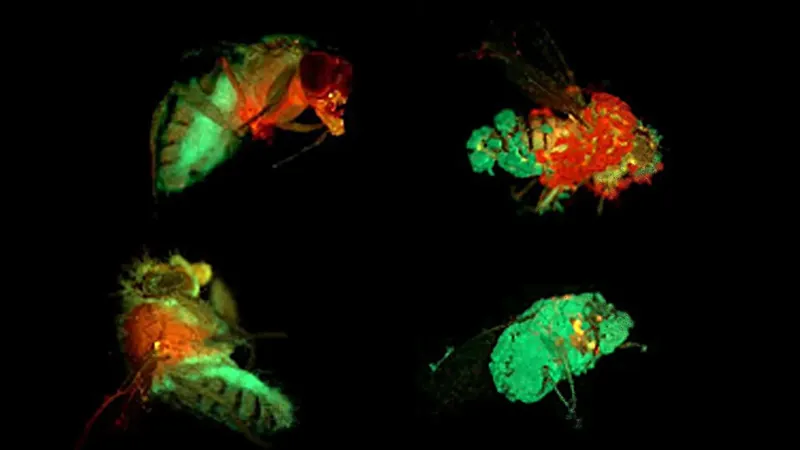
Surprising Cooperation: Parasitic Fungi Share Insect Hosts in Unlikely Harmony
2024-11-17
Author: Daniel
Groundbreaking Discovery at the University of Maryland
In a groundbreaking discovery from researchers at the University of Maryland, scientists have unveiled a fascinating relationship between two parasitic fungi species that defy the age-old notion of survival of the fittest. Rather than competing for their insect victims, these fungi cooperate, sharing their hosts in a remarkable example of ecological harmony.
Focus of the Study
The study, conducted in New Delhi, focuses on two species belonging to the genus *Metarhizium*, which are known for invading and ultimately killing their insect hosts. What sets this discovery apart is the fungi's ability to coexist without aggression. Instead of battling for dominance over their insect prey, they have evolved distinct strategies that allow for peaceful cohabitation within their hosts.
Division of Labor
The two *Metarhizium* species demonstrate a clear division of labor: one fungus occupies the front segments of the insect's body while the other takes over the back segments. This orderly partitioning results in a striking and consistent boundary visible across a diverse range of insect sizes, from caterpillars weighing in at 10 grams to diminutive flies that weigh less than a milligram.
Advanced Imaging Techniques
Using advanced imaging techniques and fluorescent proteins, the team was able to visualize this unique territorial arrangement, shedding light on how these fungi have adapted to share resources effectively. This discovery not only challenges traditional views of interspecies interaction but also provides potential insights for developing better pest control strategies.
Implications for Pest Management
By understanding the cooperative nature of these fungi, researchers could leverage their interactions to enhance biological pest management approaches. Such insights may lead to innovative methods for protecting crops from invasive species without resorting to harsh chemical treatments.
A Testament to Cooperation
As scientists continue to explore the depths of nature’s complexities, this evolutionary success story serves as a testament that cooperation can sometimes triumph over competition, opening new avenues for ecological research and sustainable agricultural practices. Could this discovery redefine our understanding of parasitism and symbiosis in nature? Only time will tell!




 Brasil (PT)
Brasil (PT)
 Canada (EN)
Canada (EN)
 Chile (ES)
Chile (ES)
 España (ES)
España (ES)
 France (FR)
France (FR)
 Hong Kong (EN)
Hong Kong (EN)
 Italia (IT)
Italia (IT)
 日本 (JA)
日本 (JA)
 Magyarország (HU)
Magyarország (HU)
 Norge (NO)
Norge (NO)
 Polska (PL)
Polska (PL)
 Schweiz (DE)
Schweiz (DE)
 Singapore (EN)
Singapore (EN)
 Sverige (SV)
Sverige (SV)
 Suomi (FI)
Suomi (FI)
 Türkiye (TR)
Türkiye (TR)